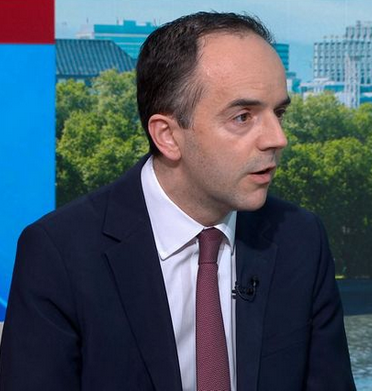The University of Wolverhampton offered visitors from Pancreatic Cancer UK the chance to examine its cancer research facilities.
University staff and students hosted the group visit which included people who had been affected by pancreatic cancer, trustees and the charity’s staff. The group were taken on an exclusive tour of the state of the art facility, where researchers demonstrated the latest technologies and techniques being employed to tackle pancreatic cancer.
University of Wolverhampton researcher, Professor Weiguang Wang, has been awarded more than £73,000 by Pancreatic Cancer UK to investigate the effectiveness of using a treatment for alcoholism, Disulfiram, to treat pancreatic cancer.
There are currently very few treatments for the disease, and less than seven per cent of people survive for five years or more after diagnosis in the UK.
More than 800 people are diagnosed with pancreatic cancer in the West Midlands on average every year. Survival has barely improved over the past 40 years and, despite this, over the last decade only one per cent of the total UK cancer research spend has been dedicated to the disease.
Leanne Reynolds, Head of Research at Pancreatic Cancer UK, said: “It was really interesting to meet the wider team at the University and find out more about how this vital research is progressing. We are really delighted to be funding this research, which we hope will lead to a much-needed new treatment for pancreatic cancer in the future. This could have an enormous positive impact on the lives of patients in Wolverhampton, the West Midlands and far beyond.”
Professor Wang’s team is currently looking at Disulfiram, and whether it can be used to effectively treat pancreatic cancer. Disulfiram can be used to kill cancer cells, but it can only survive in the bloodstream for around four minutes.
Professor Wang said that if his team is able to develop a new delivery system which allows Disulfiram to stay in the bloodstream for longer periods of time, they could test how effective the drug is at killing pancreatic cancer cells.
“We’re very pleased our research was chosen for funding and that we have been able to continue our work with Disulfiram and test its effectiveness in treating pancreatic cancer.
“Current treatment options for pancreatic cancer are limited, and most patients diagnosed with the disease have a poor prognosis. This is an extremely promising area of investigation and if we’re successful, could lead to new options to improve outcomes for people with pancreatic cancer,” Professor Wang said.
The grant was awarded as part of Pancreatic Cancer UK’s fourth annual Research Innovation Fund (RIF) grants scheme.
Karen Stead, a pancreatic cancer survivor, said: “I’d like to say a big thank you for the visit. What an interesting and inspiring few hours it was. There were so many passionate people working on the research, which was amazing. It was so nice that so many of them came along to meet us.”
















